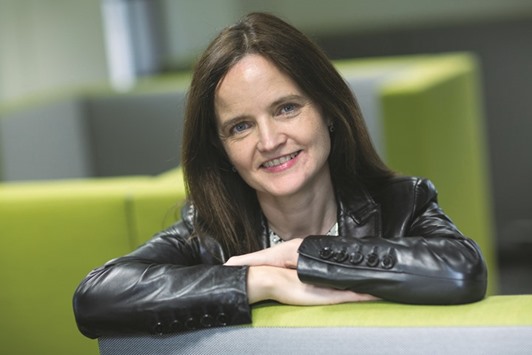Bank of England (BoE) Deputy Governor-designate Charlotte Hogg said that Brexit and a sharp drop in consumer spending pose some of the biggest risks to the UK economy, as she faced lawmaker questions about potential conflicts of interest.
UK household confidence weakened last month and BoE policy makers expect real incomes will be eroded as the slump in the pound boosts inflation above its 2% target.
That’s a threat to consumption, one of the main pillars of the economy recent strength.
“Households are beginning to face a squeeze on their incomes,” Hogg said in a questionnaire published alongside her appointment hearing in London yesterday. “The MPC’s current forecast assumes steadily slowing growth in consumption, facilitated by a continued fall in the savings rate. But I can envisage scenarios in which the reaction of consumption could be more sudden.” Hogg will replace Minouche Shafik as deputy governor for markets and banking as well as keep her role as chief operating officer.
That remit, which includes voting on interest rates, gives her the widest powers of any of Governor Mark Carney’s deputies. She will be one of just three officials on all the BoE’s key committees for monetary policy, regulation and financial stability.
Hogg’s links to British politics became part of the hearing, with Treasury Committee Chairman Andrew Tyrie noting he knew her grandfather. Her father served in the governments of Margaret Thatcher and John Major, her mother was an adviser to Major, and her grandfather and great-grandfather were both lord chancellors.
Later in the hearing, Conservative lawmaker Jacob Rees-Mogg said while he was at school at Eton, her grandfather addressed students in Greek at his invitation. Hogg’s response that she wouldn’t do her hearing in Greek prompted a comment of “Oh relief, thank you” from Rees-Mogg.
The family links also were the grounds for questions about conflicts of interest as Hogg’s brother is a director at Barclays. Hogg said she had always declared potential issues to the bank and is in “compliance with all the codes of conduct.”
Hogg, who will sit on the BoE’s Prudential Regulation Committee, said she would discuss the matter further with Carney and the central bank’s governing body. Pressed by Tyrie, she also said it’s a possibility that she would excuse herself from some discussions on Barclays.
The start of her five-year term today heralds a period of flux for the Monetary Policy Committee, with chief economist Andy Haldane’s three-year term up for renewal at the end of May, and Kristin Forbes already intending to leave a month later.
In her questionnaire, Hogg said uncertainties surrounding the UK’s exit from the EU pose upside and downside risks. Given that Brexit is muddying the outlook, prospects for business investment are “still unclear,” she said.
She also said her experience at consumer credit businesses has made her “very sensitive” to how quickly information (right or wrong) can be shared and how quickly customers could take action as a result.”
Her comments come after a report yesterday showed GfK’s sentiment index fell in February, and the appetite for making major purchases decreased, indicating that Britons may be starting to rein in spending.
With inflation accelerating, Hogg said her tolerance for a period of above-target price growth would depend in part on how that impacted the BoE’s credibility.
“My tolerance for temporarily above-target inflation will depend on events,” she said. “However, I would have no tolerance for a less than credible path back to target – from either above or below the target.”

Hogg: Cautiously optimistic.
